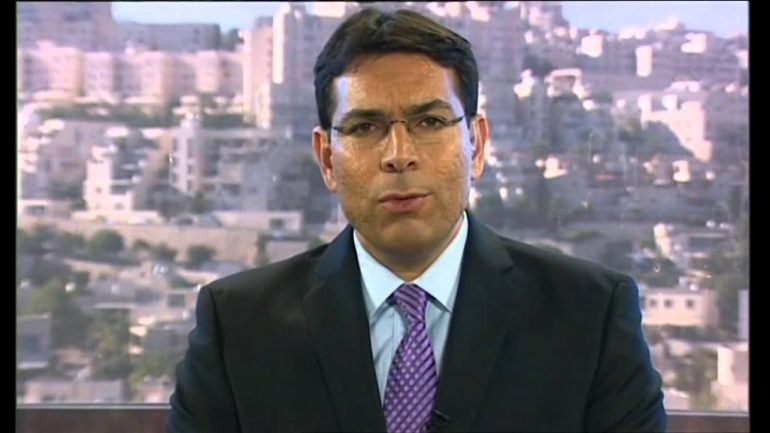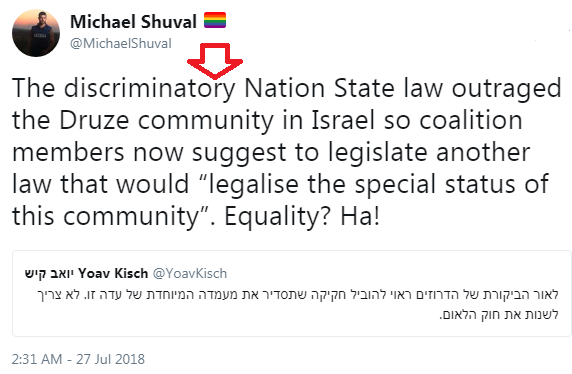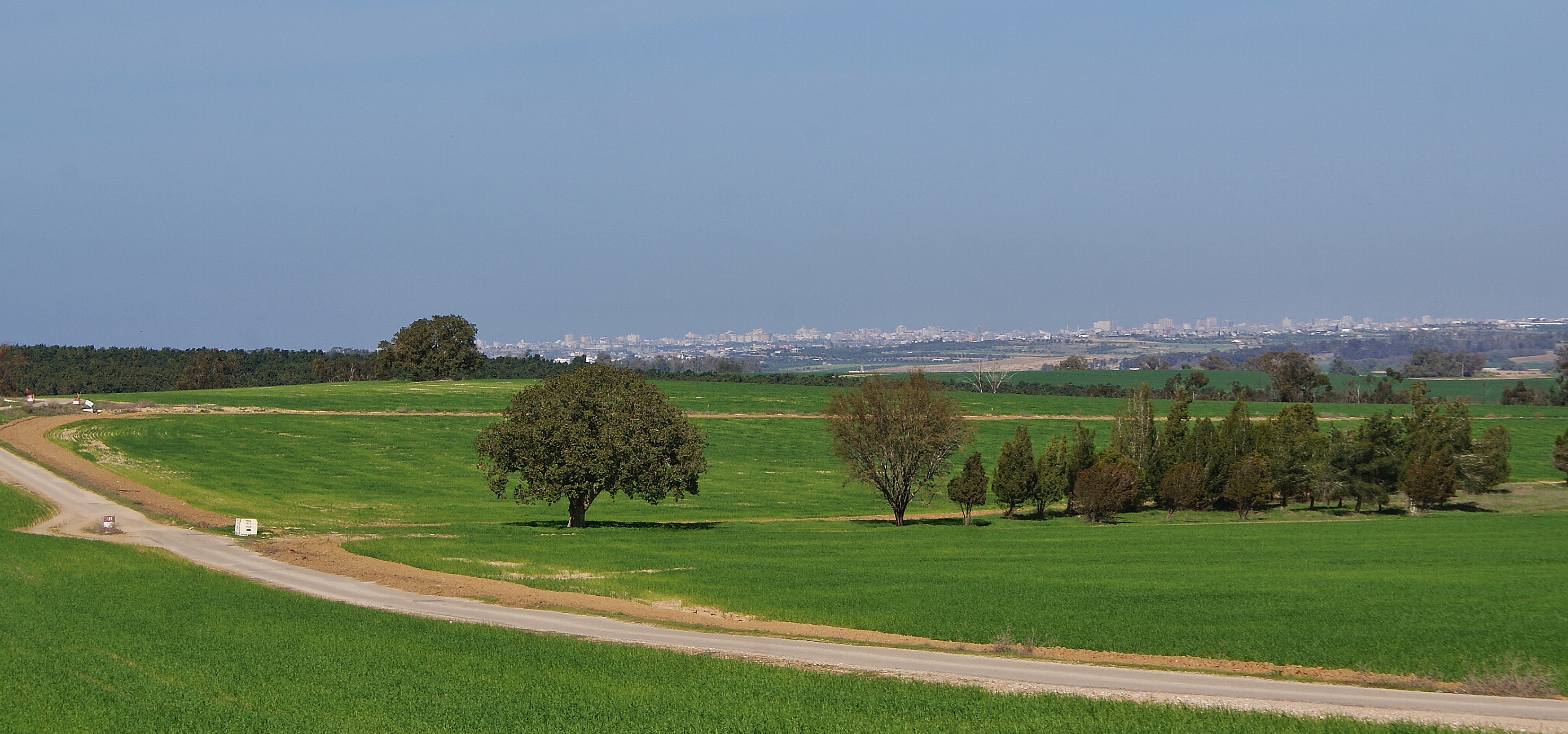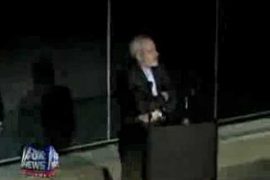This is a guest post by Aron White.
In his October 21st Hardtalk interview, Israeli MK Yair Lapid turned the tables on presenter Stephen Sackur and made the following remark: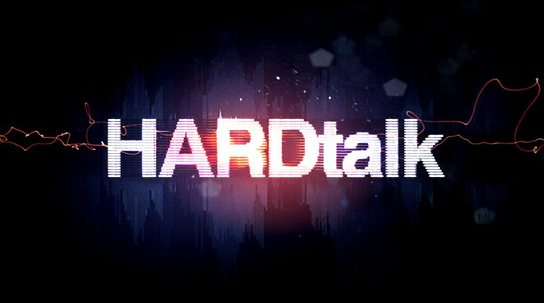
Yair Lapid: “I have been watching the show. Whenever a Palestinian is on, you don’t ask the questions that are that difficult.”
Steven Sackur: “Well you haven’t been watching the show enough then, because the Palestinians say exactly what you just said, “Oh, you are tougher on me than you are on him (the Israeli).”
An objective analysis will show that Yair Lapid is totally correct – Israeli guests on the show face a tough grilling whereas Palestinians and their supporters get basically a free pass.
Here is the introduction Stephen Sackur gave Yair Lapid last week:
“The latest paroxysm of violence between Israelis and Palestinians has conjured up a wave of horrifying images. Israelis stabbed in random street attacks, Palestinian suspects shot dead by Israeli police when seemingly no longer a threat, an innocent bystander beaten to death by an incensed Israeli crowd. Well, my guest is Yair Lapid, former finance minister, and leader of the Yesh Atid party. He has called on Israelis to”shoot to kill” at the first sign of danger. Will that kind of language enhance anyone’s security?”
This is a genuinely harsh introduction – and considering that Sackur draws no distinction between the Israeli victims of terror attacks and Palestinian attackers killed by policemen, it maybe is too harsh. But let us compare this with the opening Hardtalk laid out for Saeb Erekat during an interview in February 2014.
“What does the new right-wing Israeli coalition government under Benjamin Netanyahu mean for the Palestinians? The Palestinian president Mahmoud Abbas has made moves recently to win international backing for his cause, particularly through the United Nations. Will this strategy help or hinder their aspirations for statehood? My guest today is the Palestinian veteran chief negotiator, Saeb Erekat. Can they isolate Israel, and achieve recognition of a Palestinian state through international diplomatic channels?”
This is not the opening to a difficult interview in which Palestinian intransigence, rejectionism, incitement, corruption and human rights violations will truly be open for discussion. The question on the table is how best can the Palestinians isolate Israel: instead of asking hard-hitting questions, the BBC is merely asking whether the Palestinians can achieve their goals.
The Hardtalk bias was open for all to see during last summer’s conflict between Israel and Hamas. Hardtalk conducted two interviews on consecutive days – the first interview, on July 24th, was with Danny Danon, a former Israeli government minister, and the second interview the next day was with Khaled Mashal, leader of Hamas.
Here is the introduction to the interview with Danny Danon:
“Israel says its current campaign in Gaza is in response to rocket strikes from Hamas militants, and is aimed at destroying its illicit tunnels Hamas uses to smuggle arms. In more than two weeks of conflict, more than six hundred Palestinians, most of them civilians, have been killed, and nearly four thousand wounded. The U.N. Human Rights Commission (sic.) says Israel may have committed war crimes. About thirty Israeli have died, nearly all of them, soldiers. My guest today is Danny Danon, a member of the Israeli Prime Minister, Benjamin Netanyahu’s Likud party, He was dismissed as deputy defence minister earlier this month, for accusing the prime minister of being too weak in his Gaza campaign. How does he justify the high Palestinian death toll?”
Compare this to the introduction to the interview the very next day, with Khaled Masha’al.
“My guest today is Khaled Masha’al, the political chief of the Palestinian Islamist movement, Hamas, which is currently locked in a grim and costly military confrontation with Israel in Gaza. Right now, the pressure on Hamas is immense, military, political and diplomatic. So, is the showdown in Gaza a battle for Hamas’ survival?”
Masha’al is not being asked any hard questions at all – no question about Hamas rockets, human shields, human rights abuses, or its openly jihadist constitution. Rather than hard questions, sympathy for Hamas simply oozes from the description of a “costly” conflict with Israel that may be a battle for Hamas’ very survival.
This highlights a further point: not only does Hardtalk ask Israelis far tougher questions than Palestinians; the interviewers openly display sympathy for Palestinians and their supporters.
During his interview with William Schabas, initially appointed head of a U.N. Human Rights Council commission of inquiry into the 2014 conflict between Israel and Hamas who resigned from the post due to concerns about his objectivity, Stephen Sackur asks:
“You have talked about the campaign against you. We remember the full-page ads in the New York Times and the Wall Street Journal condemning you, talking about your bias, I believe also, you had personal emails. You had threats. Did it get to a point where you could just stand it no longer?”
Yet when he interviews Yehuda Glick, the man who was shot four times because of his activism to allow Jewish prayer on the Temple Mount, Stephen Sackur never asks him how he felt, but instead offers this musing:
“I am guessing, Yehuda Glick, that what happened to you wasn’t entirely a surprise to you. You have been a controversial figure described by many Israelis, indeed many Israelis in the Israeli government and security establishment as a provocative figure and as an extremist for years. You have known that there have been threats upon you for years too. So although it was awful, it wasn’t really a surprise was it?”
So one man who actually got shot four times (for campaigning for what he sees as religious freedom) should have seen it coming because he received threats but another man who received threats (though admittedly, by “personal email,” no less) deserves our deepest sympathy. I mean, how bad are four bullets compared to an advertisement in a newspaper?
Hardtalk is deeply biased. It challenges Israelis about how they defend themselves, but poses no hard questions to the inciters, jihadists, rocket launchers and terrorists. For Israelis, an appearance on the show is a hard talk. For Palestinians and their supporters, it is merely a soft chat.
Related Articles:
‘Hardtalk’: a test case for BBC claims of ‘equal coverage’

